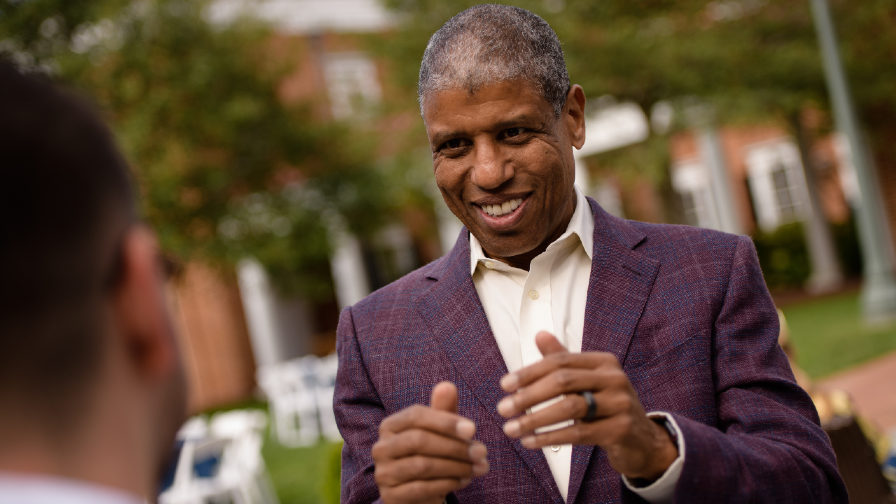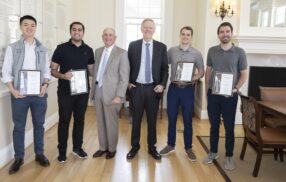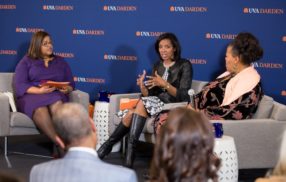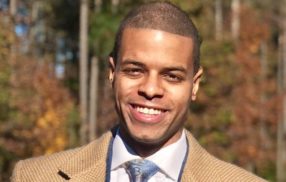
Getting to Racial Equity: Committing to Change Is Easier Than Actually Changing
By Professor Martin Davidson
Leaders of organizations across the country have mobilized over the past few months to begin — or redouble — efforts to increase diversity and foster inclusion in their organizations. But they are discovering one enduring truth: Committing to change is a lot easier than actually changing. Spurred by the killings of George Floyd and Breonna Taylor in 2020, and energized by the ongoing revelations of unarmed Black people killed by police, pressure has increased on companies to come up with productive and just ways to engage with Black employees, customers and communities. Breaking down racial barriers is a starting point.
I have had numerous conversations with senior leaders of Fortune 500 corporations, government agencies and global nonprofits who are eager to know how to create change. And here, I’ve shared what I am learning about what motivates their efforts as well as what hinders change.
Why Is Change Happening Now?
Some leaders simply want to do the right thing.
The leader of one midsize firm I spoke with shared that he had always been bothered by some of the racial disparities in society, but struggled to get momentum in his company to address those disparities, especially in his Chicago office. Social protests in Chicago and around the world gave him the entry point.
Another CEO saw it differently. He shared that, frankly, he was not overly influenced by the social protests. Actually, he objected to them because they were so associated with violence in his mind. Yet, he supported some form of diversity, equity and inclusion (DEI) work in his company because some of his best managers pushed him on the importance of engaging the workforce and representing the diverse Southeast U.S. communities where his regional offices were located. Moreover, though his company was currently well-positioned, he worried that responses to the events would catapult his competition, and he didn’t want to lose ground.
More Race Talk Isn’t Always Good Race Talk
Many leaders and employees welcomed franker discussions about race and diversity in their organizations in recent months but also saw some unintended consequences. One Black manager was excited to have a conversation about race and policing with his white colleague and friend but soon wished he hadn’t opened the door. The colleague asked a lot of questions, and his assumptions and misunderstandings left this manager deeply unsettled.
“I thought [my colleague] was with me, but he was so clueless. It was alright, and I know he’s a good guy, but now I feel like I have to watch my back more. How many other people out there are acting collegial but actually hold these crazy ideas? I don’t think a bunch of folks are out to get me, but they say dumb things that can damage my career, even if they don’t mean it.”
Healthy Relationships Across Race Seed Change
The conversation described by that Black manager is emblematic of many other conversations that took place this summer and fall. Underlying them all was frustration with the difficulty of establishing relationships across racial lines in which both parties could trust one another and not feel anxious about the repercussions of making a misstep.
Batten Fellow and visiting Professor Heather Wishik and I developed a model that describes how members of both majority groups (e.g., white, male, heterosexual) and marginalized groups (e.g., Black, women, LGBTQ+) can be “grounded” or “ungrounded” in navigating their respective group identities.
Here’s one scenario to explain groundedness.
An ungrounded white colleague discounts the racial experiences her Black colleague shared. She says, “I value you for who you are, and your race doesn’t matter. I don’t see color.” This white colleague failed to acknowledge and believe that racial difference really mattered, even when her Black colleague detailed how racial inequity affected his career.
The relationship disconnect is sharpened because the Black colleague pulls away from his white colleague. He is worn down by repeated microaggressions from white colleagues and feeling defensive whenever he interacts with white colleagues. That mistrust makes it difficult to create the professional relationships he needs to advance in the organization. In essence, the Black colleague is ungrounded, as well.
In a contrasting scenario, a grounded white colleague has leveraged what he’s learned about the experience of his Black colleagues to build trust and strong relationships with his Black teammate. He understands that his experience as a white colleague provides him benefits usually not afforded his teammate.
The potential for productive interracial colleagueship is heightened because his Black teammate is also grounded. She was certainly aware of the kinds of racial bias that can exist and was skilled in confronting them assertively and holding perpetrators of bias accountable. But she also maintains an open mind toward her white colleagues, embracing those who support her and other Black colleagues, and positively influences (if possible) those who have been unsupportive.
Groundedness is always an asset and it can be learned. It positions people to be at their best in potentially challenging cross-race relationships.
And that is the start of productive change.
Making Change at Darden
At the University of Virginia Darden School of Business, we are working to address these kinds of issues in multiple ways:
- Conversations through town halls: This summer, Assistant Dean of Global Diversity, Equity and Inclusion Christie Julien and I held webinars with faculty and staff called “Making Meaning of the Moment,” during which we gathered ideas and feedback. We also held a Juneteenth gathering of Black alumni.
- Meeting of the Dean’s Diversity Advisory Council: In July, we convened a special meeting of the Dean’s Diversity Advisory Council to get members’ perspectives.
- Formation of the Dean’s Racial Equity Cabinet: A group of senior Black alumni convened to share perspectives and provide recommendations as accomplished senior leaders.
- Meetings of the new Racial Equity and Inclusion Working Group: This group, representing a cross-section of the Darden community, has met three times and has established four working subgroups — Admissions/Entry, Experience, Faculty/Staff Climate and Alumni/External.
The concerted efforts of these groups have provided a concrete and prioritized set of recommendations for the short, medium and long term to improve Darden. We began sharing these recommendations this fall and will hone them and share more broadly in early 2021.
In addition to these change initiatives, we continue to create knowledge, develop our core skills and gather resources to sustain our continuing DEI work. Some examples of this include:
- Thought Leadership on Darden Ideas to Action: On the Diversity, Equity and Inclusion collection on Darden Ideas to Action, more than a dozen faculty experts provide actionable insights on how leaders can spur more diverse, equitable and inclusive organizations; start difficult dialogues; address historical context that shapes access to resources and opportunities; build strategies for leveraging difference; and navigate bias and social identity threats.
- On the Bookshelf: New books by faculty, including Race, Work and Leadership by Professor Laura Morgan Roberts and Emerging Domestic Markets: How Financial Entrepreneurs Reach Underserved Communities in the United States by Professor Greg Fairchild are now available.
- Online Learning: A new course, “Foundations of Diversity, Equity and Inclusion at Work,” produced by Darden Executive Education & Lifelong Learning with Professors Roberts, Fairchild, Lili Powell, Toni Irving, Sean Martin and myself, was released on Coursera.
- In the Media: Faculty have provided commentary in the global press on DEI issues. I appeared on CNN. Bloomberg and a dozen other outlets interviewed Roberts, and Fairchild wrote in The Conversation.
- Degree-Program Courses: A new, required Executive MBA course I co-taught with Roberts for the Class of 2021, along with an opening experience in the first leadership residency, brought learning to the classroom.
- Faculty Diversity: The faculty onboarded a diverse group of seven new professors to Darden, including Irving. She is teaching a new full-time MBA course called “Being in the Room Where It Happens,” which teaches a “playbook” of intangible skills and practices for students to be successful in their jobs.
- Inclusive Teaching: Faculty development seminars for creating an inclusive classroom in a virtual setting were led by Professors Tom Steenburgh and Mary Margaret Frank.
In Conclusion
I have said on several occasions that this most recent clarion call for creating racial equity won’t be the last. If history teaches us anything about racial change in the U.S., it’s that it is both achievable and (sometimes frustratingly) slow. My advice to leaders, advice I am hoping we heed at Darden, is to be strategic, action-oriented and persistent.
The University of Virginia Darden School of Business prepares responsible global leaders through unparalleled transformational learning experiences. Darden’s graduate degree programs (MBA, MSBA and Ph.D.) and Executive Education & Lifelong Learning programs offered by the Darden School Foundation set the stage for a lifetime of career advancement and impact. Darden’s top-ranked faculty, renowned for teaching excellence, inspires and shapes modern business leadership worldwide through research, thought leadership and business publishing. Darden has Grounds in Charlottesville, Virginia, and the Washington, D.C., area and a global community that includes 18,000 alumni in 90 countries. Darden was established in 1955 at the University of Virginia, a top public university founded by Thomas Jefferson in 1819 in Charlottesville, Virginia.
Press Contact
Molly Mitchell
Associate Director of Content Marketing and Social Media
Darden School of Business
University of Virginia
MitchellM@darden.virginia.edu








